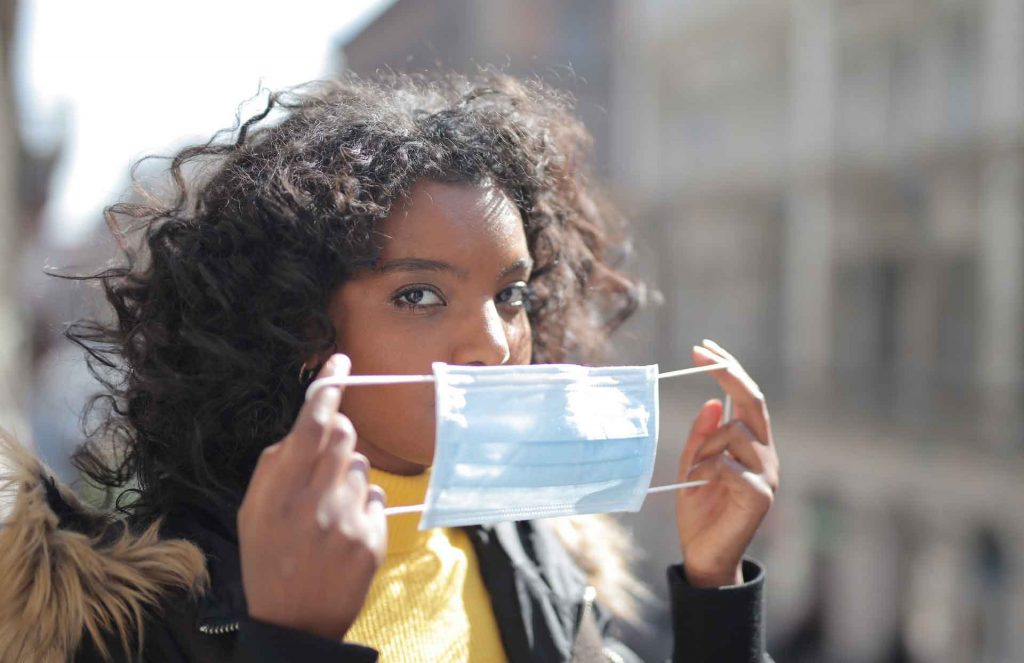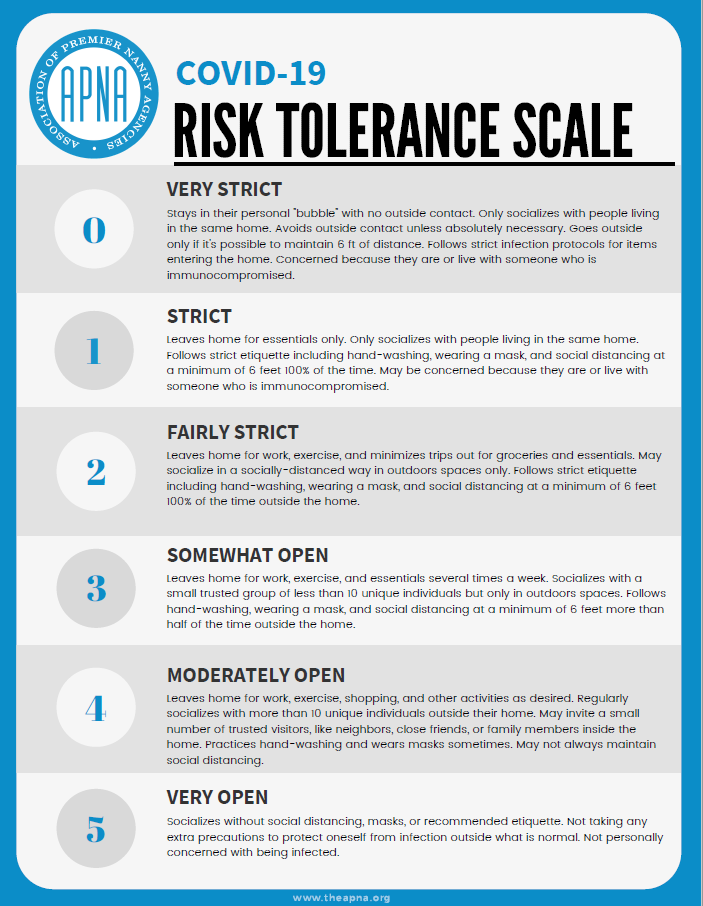
Employing or planning to hire a nanny? Make sure you and your caregiver have a similar COVID-19 risk tolerance to avoid any potential safety issues during their employment.
With the recent uptick in COVID-19 infections in many cities and towns across the U.S., parents continue to be diligent in keeping their homes and children safe during the ongoing pandemic. This is especially true as many school-aged children have returned to on-site instruction.
For their younger children, more families are turning to nannies for private, in-home childcare to reduce their children’s exposure to the coronavirus as compared to a daycare facility.
While employing a nanny may be a safer choice, a family and their caregiver still need to be on the same page when it comes to COVID-19. You or your nanny may live with someone who is elderly, has a chronic condition, or is otherwise at higher risk of contracting COVID-19. Their safety becomes your concern and the choices you make could jeopardize their health.
The Association of Premier Nanny Agencies (APNA) has prepared a handy COVID-19 Risk Tolerance Scale that can you share with your caregiver or use during the nanny hiring process. It assigns a numerical value to your risk tolerance from 0 for very strict to 5 for very open.
It seems everyone has different behaviors and attitudes toward the pandemic. Make sure you and your nanny have a similar COVID-19 risk tolerance to avoid any potential issues down the road.
Download the COVID-19 Risk Tolerance Scale (PDF).
COVID-19 Risk Tolerance Scale
0: Very Strict
Stays in their personal “bubble” with no outside contact. Only socializes with people living in the same home. Avoids outside contact unless absolutely necessary. Goes outside only if it is possible to maintain six feet of distance. Follows strict infection protocols for items entering the home. Concerned because they are or live with someone who is immunocompromised.
1: Strict
Leaves home for essentials only. Only socializes with people living in the same home. Follows strict etiquette including handwashing, wearing a mask, and social distancing at a minimum of six feet 100 percent of the time. May be concerned because they are or live with someone who is immunocompromised.
2: Fairly Strict
Leaves home for work, exercise, and minimizes trips out for groceries and essentials. May socialize in a socially distanced way in outdoor spaces only. Follows strict etiquette including handwashing, wearing a mask, and social distancing at a minimum of six feet 100 percent of the time outside the home.
3: Somewhat Open
Leaves home for work, exercise, and essentials several times a week. Socializes with a small trusted group of less than 10 unique individuals but only in outdoor spaces. Follows handwashing, wearing a mask, and social distancing at a minimum of six feet more than half of the time outside the home.
4: Moderately Open
Leaves home for work, exercise, shopping, and other activities as desired. Regularly socializes with more than 10 unique individuals outside their home. May invite a small number of trusted visitors, like neighbors, close friends, or family members inside the home. Practices handwashing and wears masks sometimes. May not always maintain social distancing.
5: Very Open
Socializes without social distancing, masks, or recommended etiquette. Not taking any extra precautions to protect oneself from infection outside what is normal. Not personally concerned with being infected.
Hiring a nanny?
Download Your Guide to Hiring a Nanny. In this guide, we lay out the steps on how to hire a nanny the right way and maintain a strong relationship with your employee.







 Get your free:
Get your free: